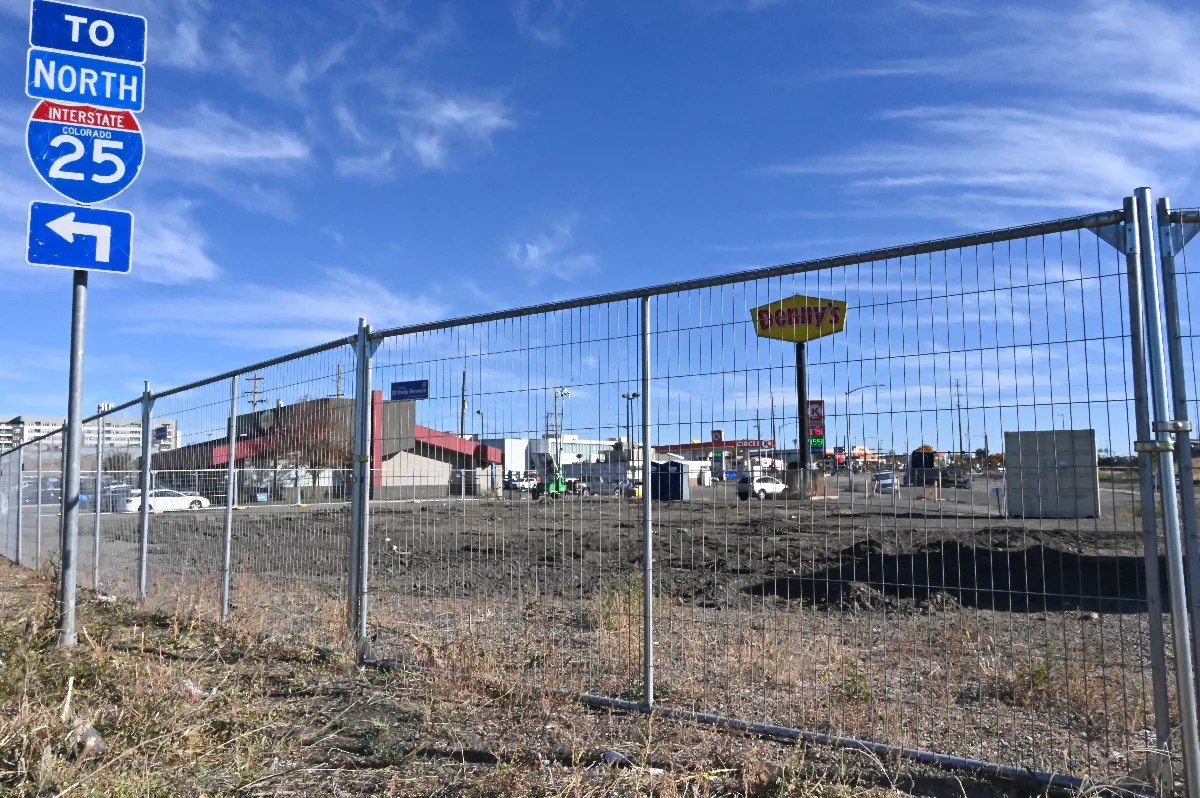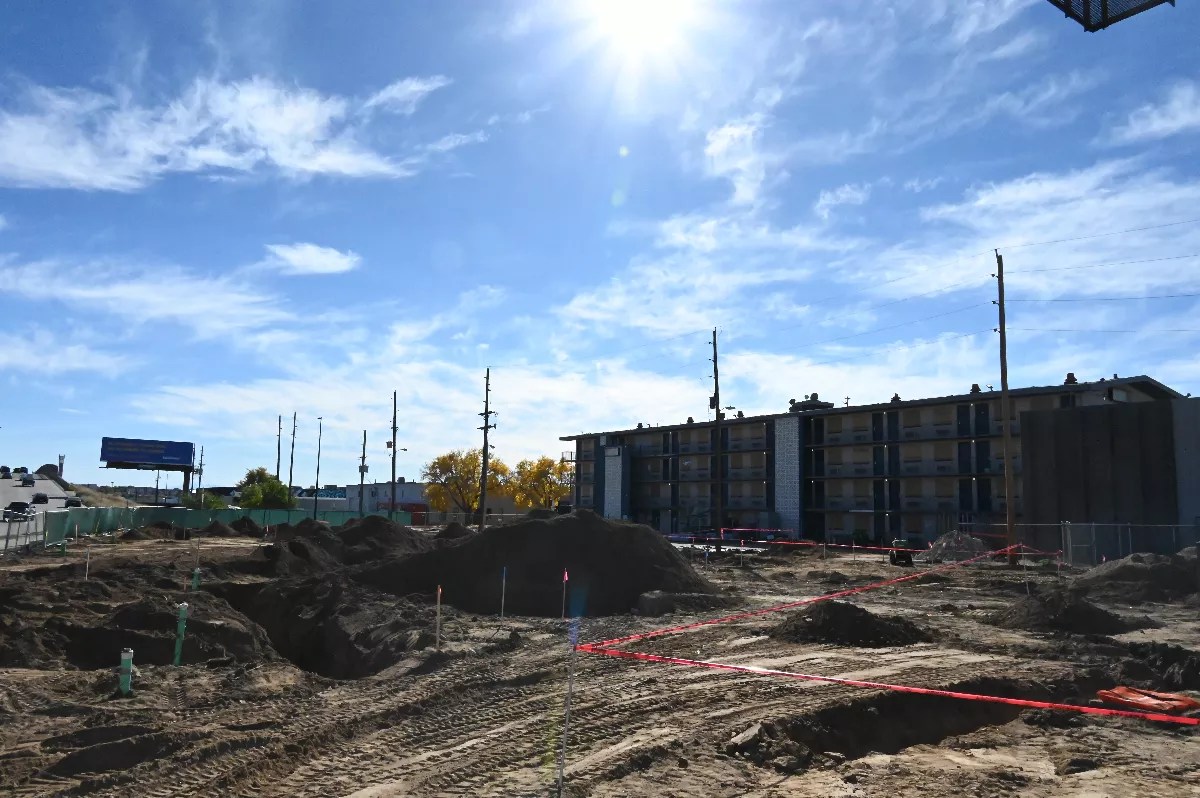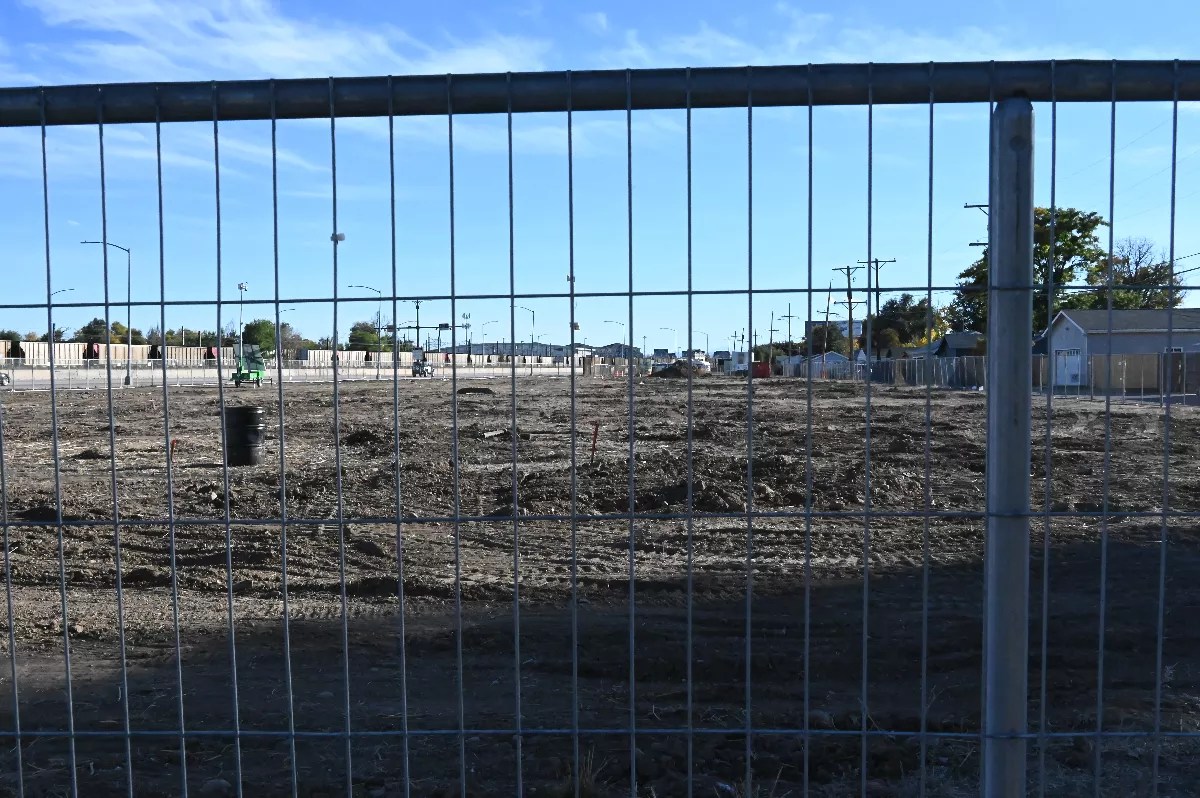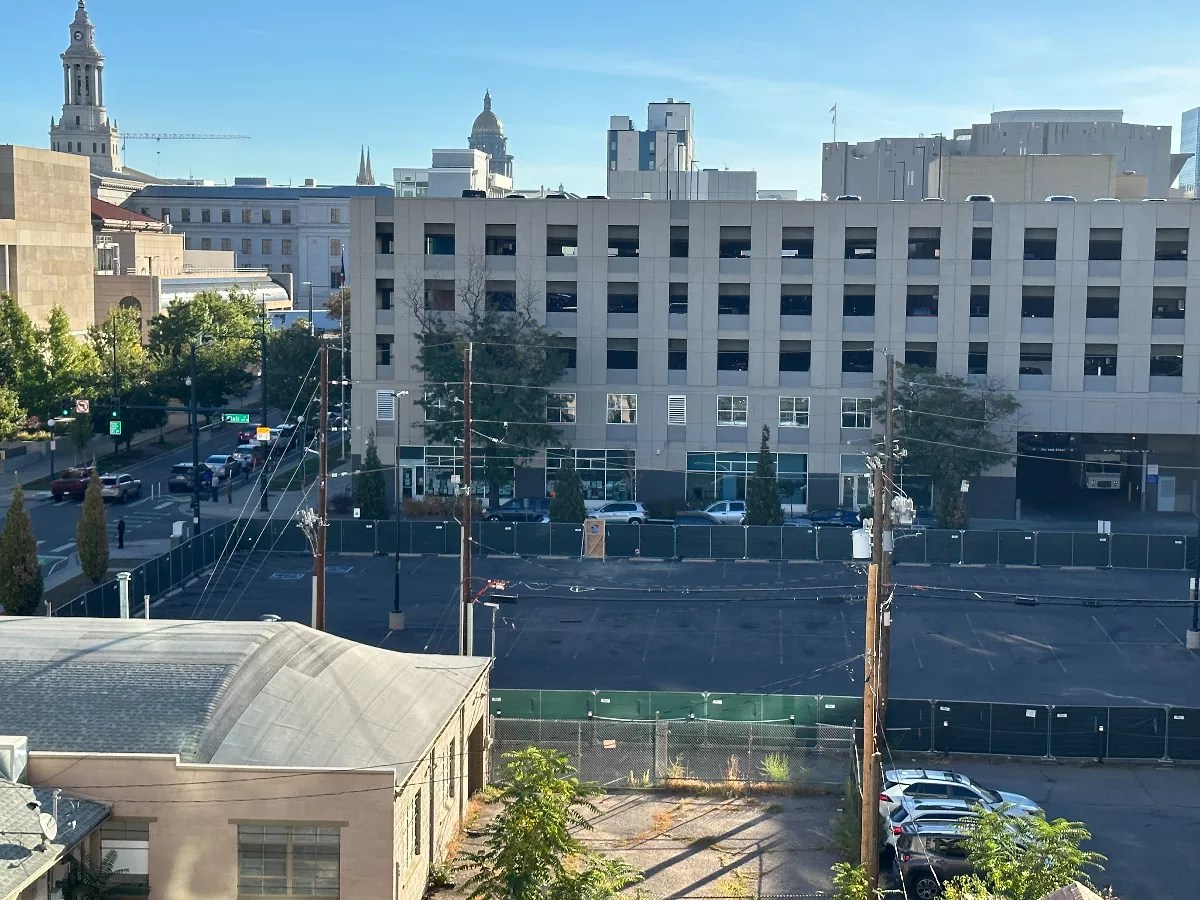
Bennito L. Kelty

Audio By Carbonatix
From their windows and balconies, Denver residents can see that the micro-communities Mayor Mike Johnston and the city have planned for his homeless House1000 initiative – and debated with residents for months – are no longer just designs and concepts.
At least four are currently being built: one in the Golden Triangle neighborhood, at 1375 Elati Street; one in Overland, at 2301 South Santa Fe Drive; one in Baker, at 950 West Alameda Avenue; and one in Central Park, at 12033 East 38th Avenue.
The construction is coming ahead of a $6 million contract that was scheduled to go before Denver City Council on September 23 to buy 300 pre-assembled “manufactured sleeping units,” or MSUs, from real estate developer Clayton Properties, an offshoot of Pat Hamill’s Oakwood Homes. The city purchased 200 pallet shelters for $7 million in late August from another company; those will be assembled on site.
Cole Chandler, Johnston’s senior advisor on homelessness, says that the main difference between MSUs and the pallet shelters is that the MSUs are larger and have more amenities. The capacity of the four sites currently being constructed adds up to nearly 300 units, with 120 going to the site on South Santa Fe and just over fifty at each of the other three sites. According to the city’s House1000 dashboard, Denver has 300 micro-community units “in procurement” and 200 units “acquired.”

Construction has started on the micro-community at the intersection of East 38th Avenue and Peoria Street. It will be located in front of the Stay Inn, which will also become transitional housing in the future.
Bennito L. Kelty
The city’s Homelessness Resolution Operation Center, which grew out of the Emergency Operation Center, confirmed to Westword in a statement that it is “currently moving forward with three of the proposed sites, and we are working to advance other sites as well.”
The agency went on to specify that “pre-construction efforts are underway at 2301 S. Santa Fe Dr. and 12033 E. 38th” and the city anticipates “pre-construction to begin soon at 1375 N. Elati St.”
The statement does not mention the West Alameda site, but fencing and digging have already started there, according to residents. Michael Cercone, a juggler who performs nearby for passing motorists nearly every day, says that construction on that project began on October 18; he captured a photo of a bulldozer on the site that day and posted it to his Instagram page.
As of October 21, the four future micro-communities all had fencing up or excavation started. Two of them – the ones on Alameda and 38th – have only a fence separating them from businesses. The other two sites are tucked away in residential areas.
Micro-communities are central to Mayor Johnston’s House1000 initiative, as he plans to use them to help shelter the 1,000 homeless individuals he’s looking to put into housing by the start of 2024. His administration appears to now be past the point of no return on these projects, as the city has officially broken ground.

Construction has already started for the micro-community going in the Overland neighborhood, and it’s one of the biggest slated to open by the end of the year.
Bennito L. Kelty
Days before the groundbreakings, Johnston visited the neighborhoods around each of the sites to ease the fears of residents. The community information meetings were intended as a last chance for people to air their grievances before the micro-communities became a reality.
While no additional community information meetings have been scheduled by the mayor’s office, according to the HROC, the city expects more to take place in the coming weeks and months.
Two of the neighborhoods where construction has started saw success in pushing Johnston back on some of his plans.
In Overland, residents managed to convince the mayor to shrink the size of their incoming micro-community from 150 units to 120 units. Golden Triangle residents changed his mind about making that neighborhood host two sites. One proposed for 12th and Bannock was ultimately nixed; now only the Elati site will be constructed.
Johnston still has a lot on his plate, however, when it comes to the planning of the micro-communities, including deciding who will live in them and who will run each one.
While the city already knows it will populate the sites with residents caught in sweeps of homeless encampments – a fact that Chandler confirmed at two recent community information meetings – it’s still unclear how the city is choosing who will go into House1000 housing and who will go into congregate shelters.
“They’re trying to put me in a shelter – a dirty, nasty shelter – with people fighting and drug use,” homeless resident Maurice Richardson said during a sweep outside the Governor’s Mansion. “I can’t be up around that stuff with my sickness. They promised to put us all in homes, but I didn’t get one.”
Johnston had initially unveiled eleven sites where the city wanted to house homeless residents for his House1000 plan. One of them is the former Best Western Hotel in Central Park. With the Bannock street site abandoned, only nine actual micro-communities remain part of the plan.
The city had housed or reunified at least 183 homeless residents as part of Johnston’s initiative as of Friday, October 20, according to the city dashboard. At least 25 residents have been reunified with their families, which counts toward the mayor’s 1,000-person goal.

The fencing has gone up around the micro-community planned at 1375 Elati Street in the Golden Triangle district.
Chris Perez
Johnston has said that he’s still working on unveiling plans for additional micro-communities and wants to space them out equitably so that each Denver City Council district hosts at least one. Many residents living next to or near planned sites have scoffed at this idea, noting how no proposals have been unveiled for Districts, 1, 2 and 5 or for wealthy neighborhoods such as Cherry Creek, Country Club, Belcaro, Bonnie Brae, Washington Park or Platt Park.
Johnston has already started housing some homeless residents, including people caught in the Governor’s Mansion sweep last month, at the Best Western. On October 18, during a press conference on the steps of City Hall – when he also announced that Denver would become the seventh place to get a federal homelessness liaison through President Joe Biden’s ALL INside program – the mayor introduced an individual named Brandon Hughes, who had been caught up in the September 26 cleanup and was blown away by the accommodations being offered by the city.
“They call it Best Western, [but] it looks nothing like a motel,” Hughes said. “They’ve got granite countertops, the staff is great, the faculty is just amazing; I’ve already gone through my case management to get recovery meetings. We’re already getting housing.”
Johnston has said that “move-in” day – when homeless residents will start living in the micro-communities – is slated for December.
However, when asked exactly when construction will finish, the HROC confessed that the city and mayor “don’t have a specific timeline” at the moment.
“The goal is to have them ready to go before the end of the year,” the office responded, “especially as the colder months approach.”